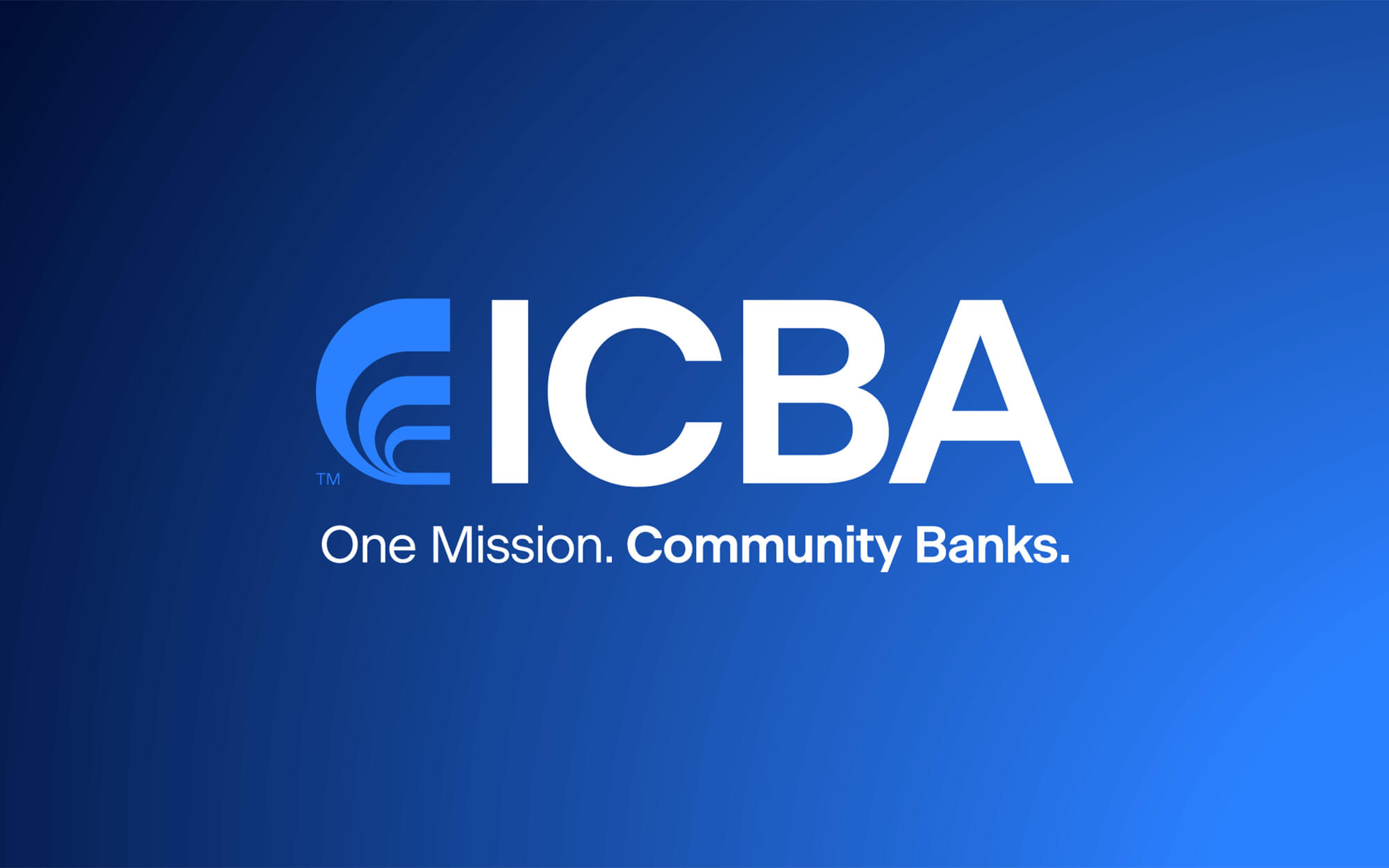The Honorable Mike Crapo The Honorable Sherrod Brown
Chairman Ranking Member
Committee on Banking, Housing, Committee on Banking, Housing,
and Urban Affairs and Urban Affairs
United States Senate United States Senate
Washington D.C. 20510 Washington D.C. 20510
Dear Chairman Crapo and Ranking Member Brown:
On behalf of community banks across the country, with more than 50,000 locations, I write to call your attention to an emerging trend in the financial services industry: A surge in tax-exempt credit union purchases of tax-paying community banks accelerating the broader trend of industry consolidation.
Given this disturbing development, we request that you convene a hearing at the earliest opportunity and exercise the Banking Committee’s oversight authority over the industry and its regulator, the National Credit Union Administration (NCUA).
It would be important for the hearing to examine the causes of the credit union-bank acquisition trend and its potential to reshape the American financial services landscape. Any hearing should also explore appropriate legislative and regulatory responses. Below we provide background to support this hearing request.
A Generous Tax Subsidy and Decades of Permissive Regulation and Lax Oversight Have Spurred Aggressive Credit Union Industry Growth
The credit union-bank acquisition trend – while new and potentially game changing – is best understood as the culmination of a long-term transformation of the credit union industry. In the years immediately following enactment of the Federal Credit Union Act in 1934, the credit union industry stayed true to its tax-exempt purpose of serving individuals and families of modest means with a common bond among them.
The era of rapid growth and charter expansion began with the creation of the NCUA in 1970. The NCUA’s permissive regulation and supervision – consistently flouting the statutory limits of the Federal Credit Union Act – is largely responsible for the rapid growth of credit unions and their tax subsidy.
Restrictions on field of membership have all but dissolved, while limits on commercial lending have been drastically weakened. On January 23, the NCUA issued a proposed to allow credit unions to raise supplemental capital.
Supplemental capital would be a tool for outside investments in credit unions, undermining their status as member-owned cooperatives, a long-standing justification for their tax exemption. If the proposal becomes final, it is likely that mega-credit unions will use outside, private capital as a war chest to fund bank acquisitions.
Consider, taking just a recent example, Pentagon Federal Credit Union’s partnership with Goldman Sachs to fund the second phase of the District of Columbia Wharf’s million dollar plus residences, hotels and marina with a nearly $1 billion loan – the biggest construction loan in D.C. history. It is impossible to ignore just how far credit unions have strayed from their duty to serve people of modest means.
Today’s Credit Unions: Unrestrained, Growth-Obsessed, and Mega-Sized
In the last five years alone, the total assets of federally insured credit unions have grown by more than $430 billion and membership has grown by more than 20 million, while the total number of credit unions has declined by over 1,000.
Today there are over 300 credit unions with assets of more than $1 billion and ten credit unions with assets of more than $10 billion, the largest of which has more than $100 billion in assets, dwarfing the size of the community banks with which they compete. The largest credit unions are experiencing the fastest growth.
The nation’s largest credit union, Navy Federal in Vienna, Va., increased its assets by 102 percent between 2012 and 2019. What’s more, credit unions with more than $1 billion in assets account for the largest share of the tax subsidy, over 75 percent.
Bank Acquisitions Are the Next Phase of the Industry’s Aggressive Growth
For decades, credit unions have used their tax subsidy and a permissive regulatory environment to expand their market share. What’s happening today – credit union “weaponization” of their tax subsidy and lax regulatory environment to purchase whole community banks – is an order of magnitude more significant and warrants Congressional scrutiny.
These deals transform taxable business activity at community banks into tax-exempt activity at credit unions, thereby shrinking the tax base, not only at the federal level but at the state and local level as well.
The trend has sharply increased in recent years. Before 2012, credit union acquisitions of banks or bank assets were limited to one or two a year. They have steadily ramped up since then, accelerating rapidly in 2018, which saw 13 acquisitions, and in 2019, which saw 21, more than four times as many as occurred just five years ago.
Already in 2020, the $8.1 billion Alaska Federal Credit Union, headquartered in Anchorage, announced a deal to purchase seven Phoenix-area bank branches and deposits from TCF Financial in Detroit. Alaska Federal Credit Union, which operates in four states, is typical of an acquiring credit union both in its multi-billion-dollar balance sheet and in crossing state lines to make an acquisition.
The acquisition targets have also grown larger. In June 2019, $3.6 billion MidFlorida Credit Union announced the acquisition of Ocala Community Bank & Trust of Florida, a $730 million community bank.
At the time, the size of the target bank dwarfed any previous acquisition, which typically involved a community bank with assets of $200 million or less. Yet, in December 2019, a still larger deal was announced. Suncoast Credit Union of Tampa, a $10.4 billion institution, announced the purchase of Apollo Bank, a $747 million asset bank in Miami. The trend suggests that it will not be long before we see the first credit union acquisition of a bank with assets of $1 billion or more.
Interested in discussing this and other topics? Network with and learn from your peers with the app designed for community bankers. Join the conversation with ICBA Community.
These deals have received significant media attention and public interest. Prominent examples include a September Wall Street Journal article headlined, “Credit Unions Go on Bank Buying Spree,” and the December American Banker article, “Credit Unions’ Bank Buyout Spree Snags Biggest Fish Yet.” [1]
All indications are that the credit union-bank acquisition trajectory will continue – unless Congress exercises needed regulatory oversight. On January 23, in response to pressure created by rising media and congressional scrutiny, the NCUA issued a proposed rule governing credit union-bank acquisitions.
Our initial review of the rule finds it inadequate in its effort to erect needed guardrails to govern these transactions. We urge the Banking Committee’s support in ensuring the NCUA significantly strengthens the proposal.
The Impact of Credit Union-Bank Acquisitions
Acquisitions fail to extend access to banking services
ICBA believes credit union-bank acquisitions are a perversion of congressional intent in the creation of the federal tax exemption more than 70 years ago.
The purpose of the tax exemption was to create access to affordable, basic banking services for people of modest means who would otherwise lack it. Bank customers, by definition, already have access to banking services, nor are they better off as customers of an acquiring credit union.
In fact, a recent study found that credit union service fee income has surged in recent years and now stands at 132 percent of its 2008 level. Compare this to bank service fee income, which has dropped to just 84 percent of its 2008 level.
Using the generous tax exemption to shift consumers from banks to credit unions serves no public purpose; it merely displaces existing services provided by tax-paying banks. This is not a free-market transaction: The purchasing credit union is using tax-subsidized earnings to acquire a tax-paying business.
The tax subsidy is promoting harmful consolidation
The purchase of community banks by multi-billion credit unions is a policy concern for the same reason that all financial industry consolidation is a concern: Larger, out-of-market institutions –be they banks or credit unions – displace locally based community banks.
A market dominated by large institutions is less competitive, creates systemic risk, and will result in fewer choices for consumers and small businesses and ultimately less favorable rates and pricing. Institution size should be dictated by the marketplace and economies of scale, not by regulatory compliance burden, nor by a distorted tax code that favors one type of financial institution over another and promotes growth-obsessed credit unions.
A less tangible but no less real consideration is this: Consolidation alters the character of our financial services sector for the worse. What sets community banks apart from other institutions is their firsthand knowledge of their communities and their offer of personalized services and customized products.
Something irreplaceable is lost when a community bank that has been rooted in its community for generations is purchased by an out-of-market mega-credit union.
Acquisitions reduce scarce tax revenues at all levels of government
The cost of the credit union tax exemption has grown steadily as credit unions have become larger, grown their market share, and displaced tax-paying banks.
That cost now stands at $2 billion annually and is projected to grow, according to the Joint Committee on Taxation. However, when a credit union purchases a bank it removes a taxpayer wholesale from the revenue stream.
Over time, this will significantly increase revenue losses, not only for the federal government but for state and local governments that depend on these revenues to fund essential services from teachers to fire fighters and police officers.
Community banks support their local communities and their federal government with tax dollars. Credit unions do not. As noted above, the largest six percent of all credit unions (those with assets greater than $1 billion) as responsible for 75 percent of the revenue deficit. Their expansion should be held in check, or their tax status should be altered.
Legislative and regulatory solutions
Finally, we urge you to use a committee hearing and your jurisdiction over the Federal Credit Union Act and the NCUA to explore available options for curbing the credit union-bank acquisition trend.
These options include requiring the NCUA to create more rigorous standards for the approval of acquisitions. In addition, current NCUA rules impose numerous and daunting hurdles that make it nearly impossible for a bank to buy a credit union or for a credit union to convert to a bank.
This explains why there have been so few of these transactions in recent decades. Congress should ensure that it is no more difficult for a bank to acquire a credit union than for a credit union to buy a bank. A level playing field in this regard would go a long way toward addressing the concerns outlined in this letter.
To conclude, the American financial services landscape is shifting rapidly and irreversibly as a result of credit union-bank acquisitions. This is a matter of significant public concern and Congress should exercise its oversight authority to examine this troubling distortion. We urge you to convene a comprehensive hearing to examine the causes and the impact of this dangerous trend and to explore potential solutions.
Thank you for your consideration.
Sincerely,
Rebeca Romero Rainey
President & CEO
CC: Members of the Senate Banking Committee
[1] Clozel, Lolita. “Credit Unions Go On Bank Buying Spree.” Wall Street Journal, September 3, 2019. https://www.wsj.com/articles/credit-unions-go-on-bank-buying-spree-11567515601?mod=searchresults&page=1&pos=3 McCarthy, Ken. “Credit unions’ bank buyout spree snags biggest fish yet.” American Banker, December 3, 2019. https://www.americanbanker.com/news/credit-unions-bank-buyout-spree-snags-biggest-fish-yet






